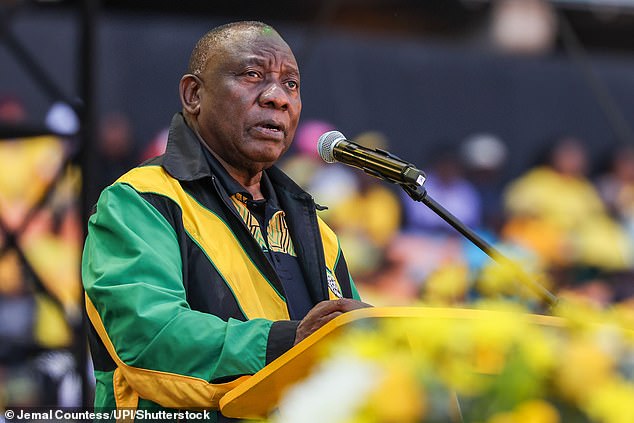The African National Congress party lost its majority in a historic election result on Saturday that puts South Africa on a new political path for the first time since the end of the apartheid system of white minority rule 30 years ago.
With more than 99% of the votes counted, the once-dominant ANC had received just over 40% in Wednesday’s parliamentary elections, well short of the majority it had had since the 1994 multiracial vote that ended apartheid and brought him to power under Nelson Mandela.
Final results are yet to be formally declared on Sunday by the Independent Electoral Commission, but the ANC cannot pass 50% and an era of coalition government, also a first in South Africa, looms.
The ANC will now likely have to look for one or more coalition partners to remain in government and re-elect President Cyril Ramaphosa for a second and final term. Parliament must meet to elect the South African president within 14 days of the election result being declared.
The ANC remains the largest party despite the damage caused by an upstart rival led by former president Jacob Zuma and is therefore expected to retain the presidency.
President Cyril Ramaphosa speaks during the final African National Congress rally before South Africa’s national elections at the FNB Stadium in Soweto, South Africa.
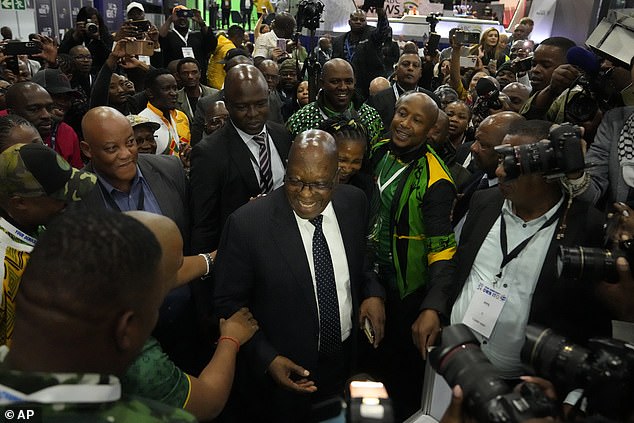
Former president and now MK Party leader Jacob Zuma arrives at the Results Operation Center (ROC) in Midrand, Johannesburg.

The empty African National Congress stand at the National Results Operations Center of the South African Electoral Commission
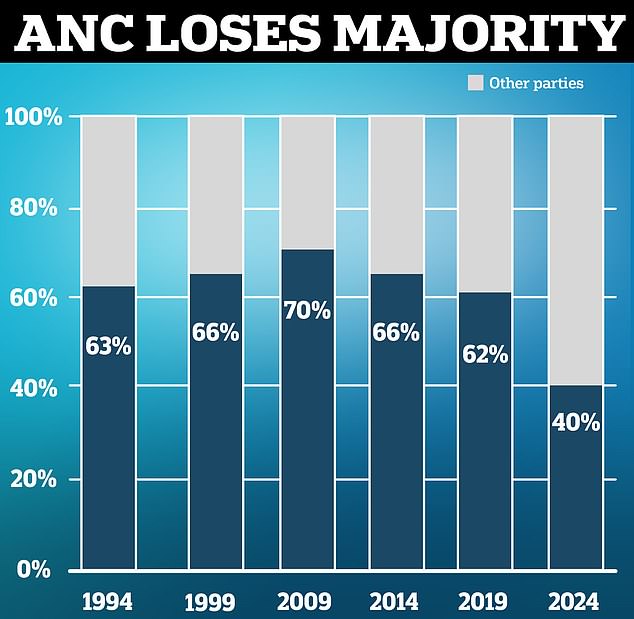
But as the second largest political force with 21.8% of the vote, the Democratic Alliance is one of three parties with the influence to help it form a new majority and potentially shape the future of the nation.
“The way to rescue South Africa is to break the ANC majority and we have done that,” said John Steenhuisen, leader of the main opposition Democratic Alliance party.
Julius Malema, leader of the opposition Economic Freedom Fighters party, said the ANC’s “right to be the only dominant party” was over.
The path forward could be complicated for Africa’s most advanced economy and there is no coalition on the table yet. The three main opposition parties and many smaller ones were in the mix when negotiations began.
“We can talk to anyone and everyone,” ANC president Gwede Mantashe said on national broadcaster SABC.
Steenhuisen’s Democratic Alliance received around 21% of the vote. Former president Jacob Zuma’s new MK Party, which has turned against the ANC he once led, came third with just over 14% of the vote in the first election in which he participated. The Economic Freedom Fighters came in fourth place with just over 9%.
More than 50 parties participated in the elections, many of them taking small shares, but the three main opposition parties seem to be the most obvious ones for the ANC to approach.
Electoral commission chairman Mosotho Moepya said it was a time for all of us to remain calm “and for leaders to lead and for the voices of reason to continue to prevail”.
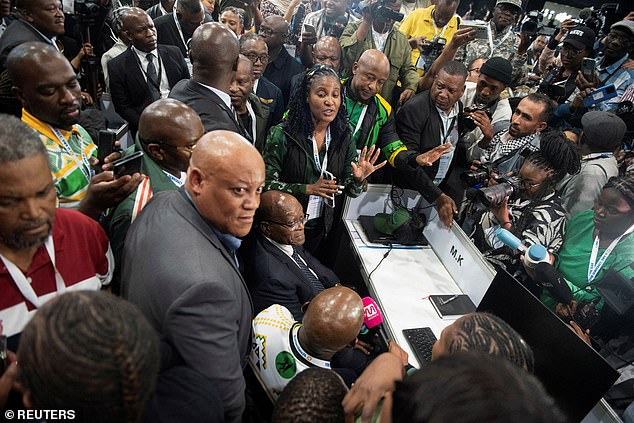
Former South African President Jacob Zuma sits at the uMkhonto weSizwe (MK) stand at the IEC National Results Operations Center
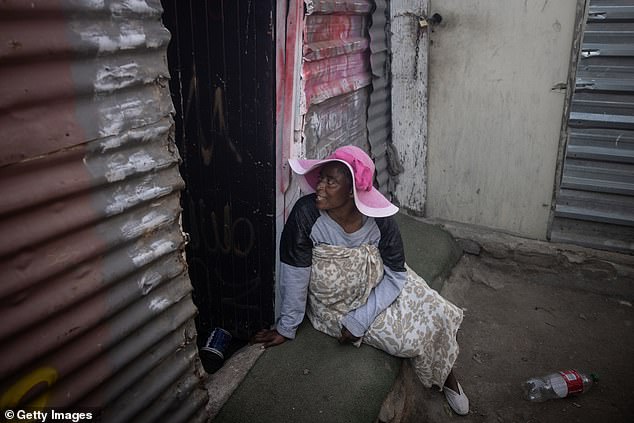
The official unemployment rate is 32% and poverty disproportionately affects blacks
“This is a moment that we must manage and manage well,” he said.
Steenhuisen said his party is open to talks with the ANC, as is Malema. The MK Party said one of its conditions for any deal was that Ramaphosa be removed as leader and president of the ANC. That underscored the fierce personal political battle between Zuma, who resigned as South African president under a cloud of corruption allegations in 2018, and Ramaphosa, who replaced him.
“We are willing to negotiate with the ANC, but not with Cyril Ramaphosa’s ANC,” MK Party spokesperson Nhlamulo Ndlela said.
MK and the far-left Economic Freedom Fighters have called for parts of the economy to be nationalised.
The centrist Democratic Alliance (DA) is seen as pro-business. Analysts say an ANC-DA coalition would be more welcomed by foreign investors.
DA has been the most critical opposition party for years and does not share the ANC’s pro-Russia and pro-China foreign policy. South Africa will take over the presidency of the Group of 20 industrialized and emerging market countries next year.
An ANC-DA coalition “would be a marriage of two drunks in Las Vegas.” “It will never work,” Gayton McKenzie, leader of the smaller Patriotic Alliance party, told South African media.
DA says an ANC-MK-EFF deal would be an “apocalyptic coalition” as MK and EFF are made up of former ANC figures and would pursue the same failed policies.
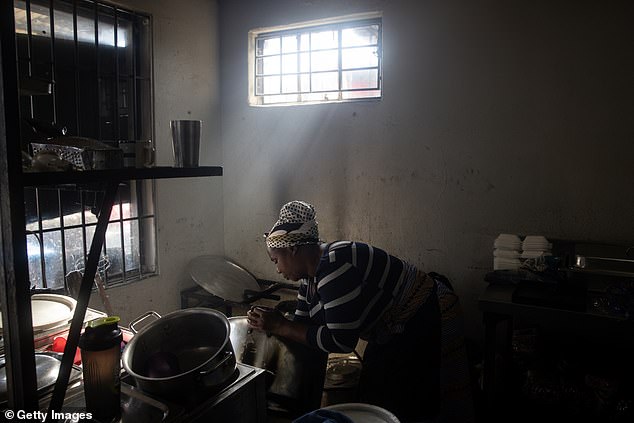
A woman cleans a pot in the kitchen of a restaurant in Alexandra township on May 31, 2024 in Johannesburg.
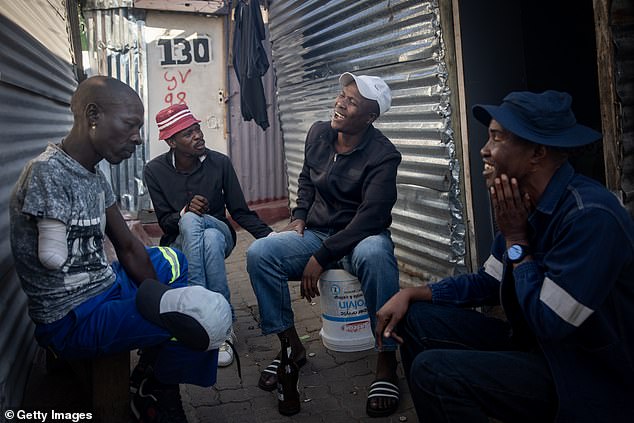
Men joke as they share a beer outside their homes in an informal settlement in Alexandra township on May 31, 2024 in Johannesburg.
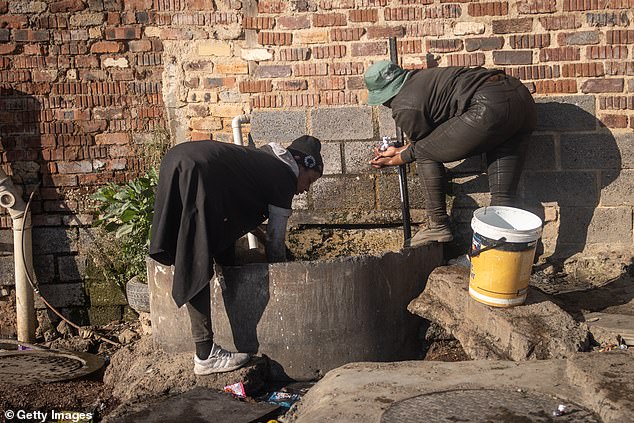
Women collect drinking water in an informal settlement in Alexandra township on May 31, 2024 in Johannesburg.
The three opposition parties had a larger combined share than the ANC, but it is highly unlikely that they would all work together. The DA was also part of a pre-election agreement with other smaller parties to potentially form a coalition.
Amid all this, there was no sense of celebration on the part of ordinary South Africans, but rather a realization that a difficult political road lay ahead. The Daily Maverick newspaper had one South African scratching his head with the words: “What does this mean for our future?” on its cover. The newspaper Die Burger first published an image of a dozen political party logos stuffed into a meat grinder.
The South African opposition parties were united in one thing: something had to change in the country of 62 million inhabitants, which is the most developed in Africa but also one of the most unequal in the world.
The official unemployment rate is 32% and poverty disproportionately affects black people, who make up 80% of the population and have been the core of ANC support for years. The violent crime rate is also high.
The ANC has seen a steady decline in support over the past 20 years, but by three to five percentage points in each election. This time it fell 17 percentage points from the 57.5% it gained in 2019.
Nearly 28 million South Africans were registered to vote and turnout was expected to be around 60%, according to the electoral commission.
People lined up on a cold winter night and waited hours after the polls’ official closing time, with some votes being cast as early as 3 a.m. the next day. This indicated the desire of many to have their say, but also reflected one of South Africa’s inherent problems: some polling stations suffered delays due to power outages that plunged them into darkness.

